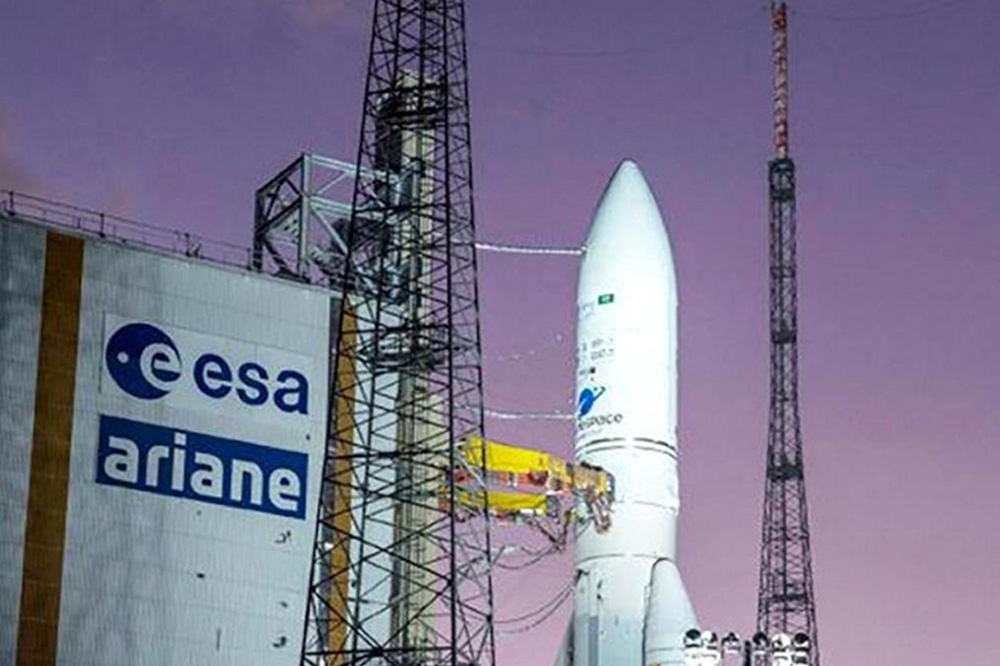
Orbiting the earth today is a satellite with the words “High Above The Clouds” written by Saudi Arabia’s Crown Prince Muhammad Bin Salman, marking the Kingdom’s successful launch of its first-ever satellite for communications (SGS-1). Sent into space this month from the Guiana Space Center (in French Guiana, South America) on an Ariane 5 rocket, SGS-1 has been designed to provide secure communications, internet connectivity, and television signal across the region.
According to various reports, the satellite, which weighs 6.5 tons and has a life expectancy of more than 20 years, was developed by a team from the King Abdulaziz City for Science and Technology (KACST) in collaboration with American aerospace company Lockheed Martin. Speaking to The National, Badr Al Suwaidan, the satellite’s program director, described the launch of SGS-1 as “a sign of a new era.”
“It provides secure satellite communications, stronger internet, and television connectivity, on the KA band for the government of Saudi Arabia, it has the coverage of Middle East, North Africa, and Europe for the next 15 years,” he explained.

Saudi Arabia’s Minister of Energy, Industry and Mineral Resources and chairman of the board of directors at KACST, Khaled Al-Falih, also touched on the significance of the launch, saying that it was indeed a remarkable national achievement and was largely made possible through the support provided to the Kingdom’s research and development sector by Saudi Arabia’s King Salman and the Crown Prince.
As the country continues its drive towards creating a more tech-centric and knowledge-based economy, under the objectives laid out in its Vision 2030 national strategy, it is focusing heavily on “localizing strategic technologies in the Kingdom, increasing local content and enabling Saudi young people to work with advanced state-of-the-art technologies in the field of satellite development and manufacturing,” as highlighted by Saudi Gazette.
SGS-1, which will serve both the Saudi government and Greek-Cypriot Hellas-sat, a subsidiary of the Riyadh-based Arabsat, will be operated and controlled from ground stations based in Saudi Arabia, serving and supporting the infrastructure of the telecommunications sector in the Kingdom.
















